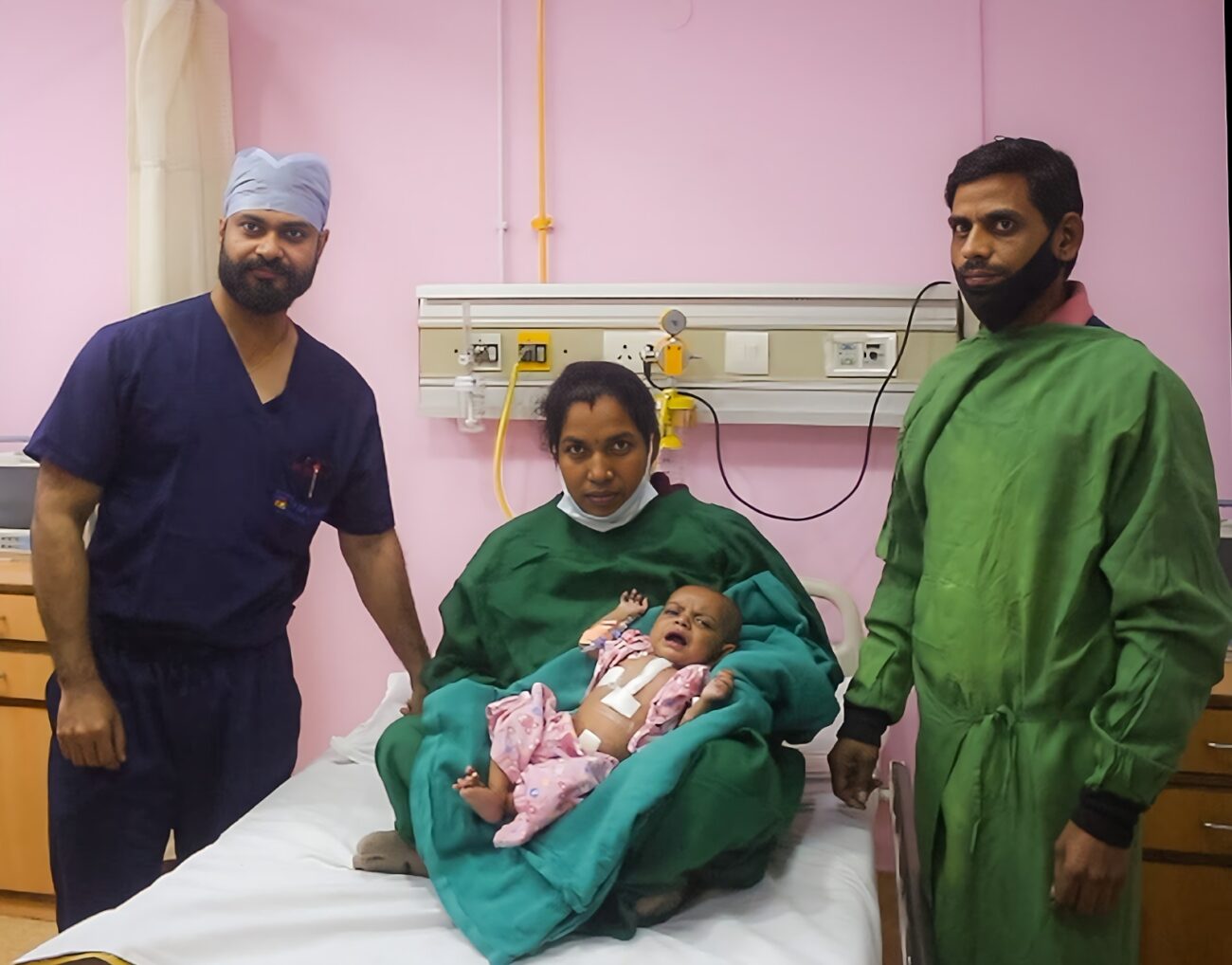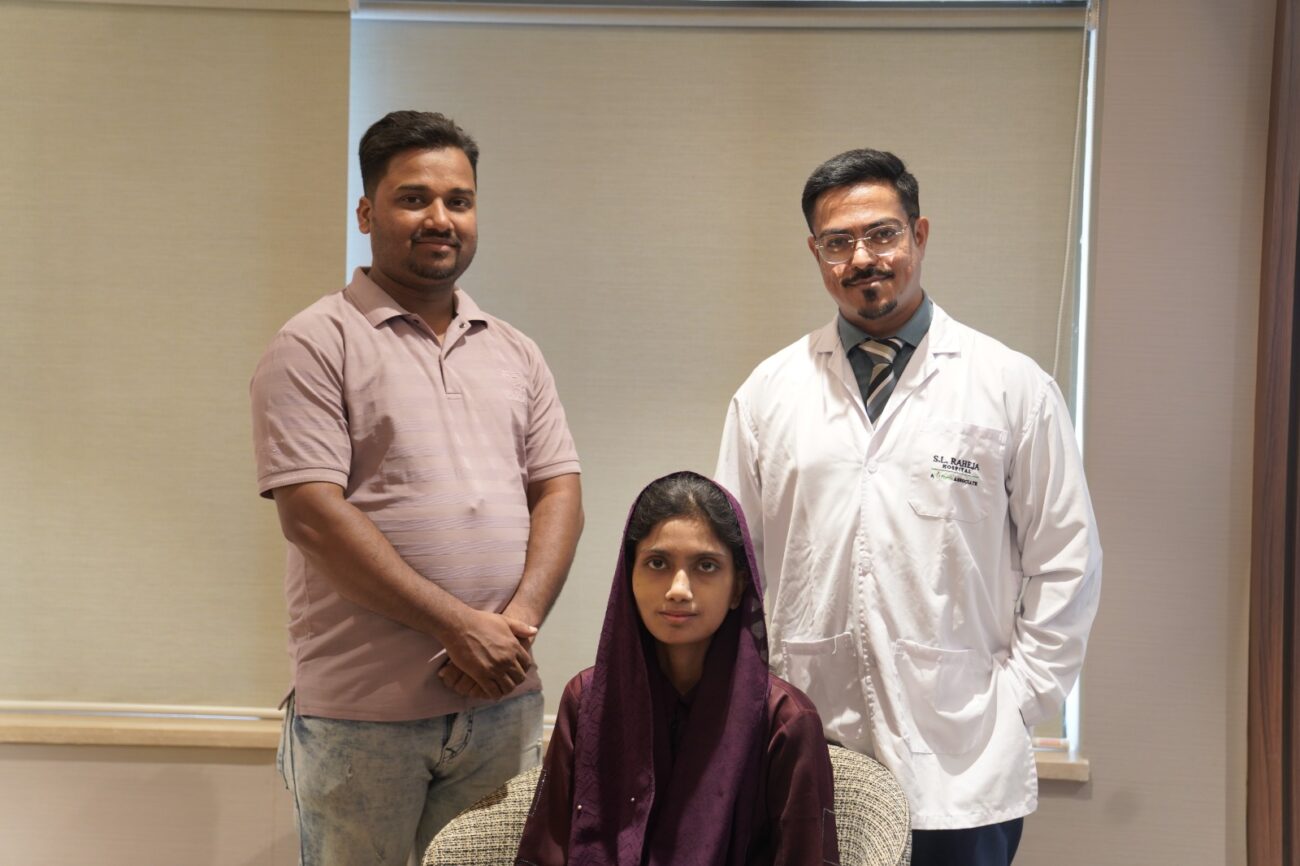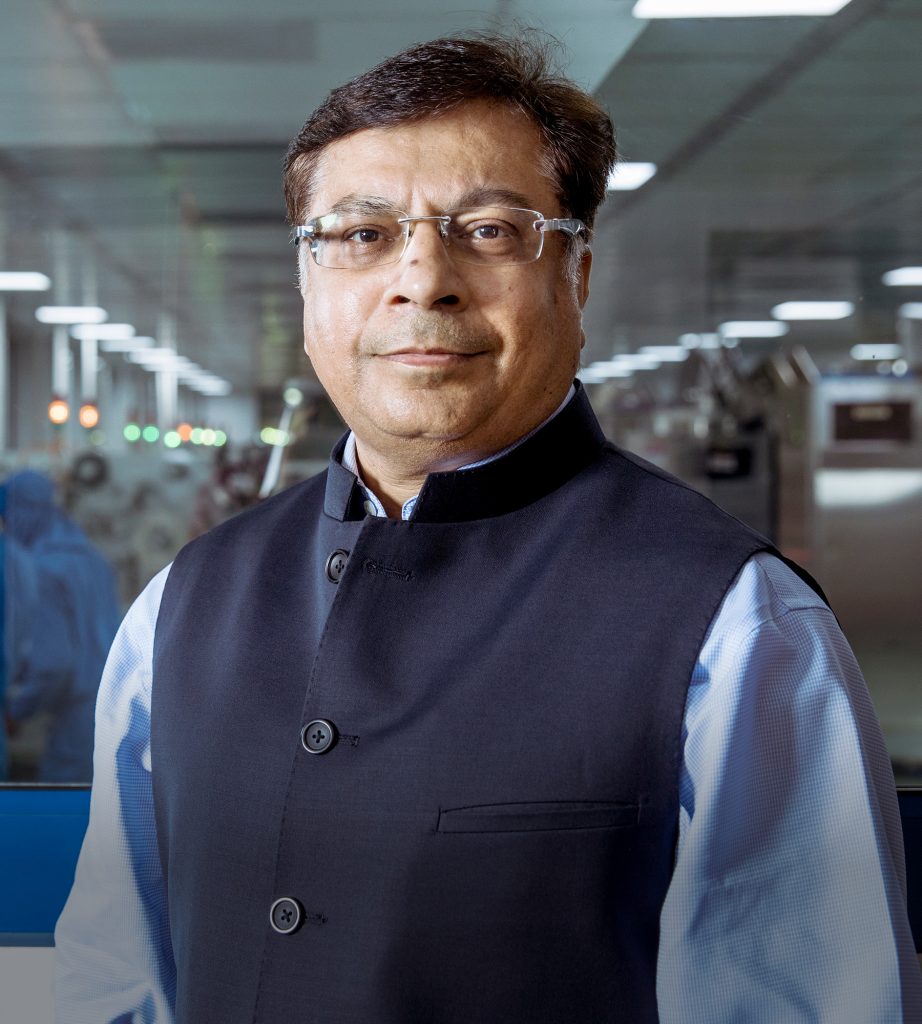Doctors at Sarvodaya Hospital perform Faridabad’s First Arterial Switch Operation on a 4-month-old baby suffering from rare heart condition
A team of Paediatric Cardiology and Cardiac Surgery at Sarvodaya Hospital, Sec 8, Faridabad, successfully diagnosed and treated a 4-month-old baby who was suffering from a rare congenital heart condition called Transposition of the Great

A team of Paediatric Cardiology and Cardiac Surgery at Sarvodaya Hospital, Sec 8, Faridabad, successfully diagnosed and treated a 4-month-old baby who was suffering from a rare congenital heart condition called Transposition of the Great Arteries (TGA), along with a hole in his heart. To save the child’s life, doctors performed one of the most complex procedures, called Arterial Switch Operation, for the first time in Faridabad.
The child from Gurugram was suffering from illness since birth, experiencing symptoms such as cold and fever, refusal to breastfeed, recurring pneumonia, bluish discoloration of the skin, and insufficient weight gain. Despite consulting many nearby doctors, his condition showed no improvement.
Upon arrival at the Sarvodaya Hospital, the child was diagnosed with TGA (Transposition of the Great Arteries of Heart) and a hole in the heart. TGA is a serious and rare heart condition in which the two main arteries carrying blood out of the heart – the main pulmonary artery and the aorta – change their position (get “transposed”).
The child also had a hole in his heart between the right and left ventricles, called a ventricular septal defect (VSD). As if that was not enough, he had severe Pulmonary Arterial Hypertension too. In short, the child’s heart had a hole, both the great arteries of the heart were reversed in position, and there was high blood pressure in the arteries of his lungs.
“Transposition of the great arteries can be life-threatening in newborn babies. A timely and accurate diagnosis is critical for the baby’s survival and long-term health. Early diagnosis of TGA allows for prompt initiation of appropriate medical interventions and surgical procedures, which can improve the baby’s prognosis. Without proper diagnosis and intervention, TGA can lead to severe complications, including heart failure and brain damage. Infants with TGA may present with a variety of symptoms that include difficulty in breathing, pounding heart, weak pulse, bluish skin color and poor feeding,” said Dr. Viresh Mahajan, Director – Paediatric Cardiac Science, Sarvodaya Hospital, Sector 8, Faridabad.
The doctors decided to perform an immediate Arterial Switch Operation with closure of VSD (hole in the heart). The team for surgery consisted of two paediatric cardiologists, two cardiac surgeons, a paediatric cardiac anesthesiologist and a paediatric intensivist.
“In the operation theatre, we put the child on cardio-pulmonary bypass and then medically arrested his heart to perform the Arterial Switch Operation. We cut off the aorta and pulmonary arteries just above the point where they left the heart and reconnected them to the proper ventricle. So, what was once the pulmonary valve became the aortic valve, and the aortic valve became the pulmonary valve,” said, Dr. Ved Prakash, Senior Consultant – Cardiothoracic & Vascular Surgery, Sarvodaya Hospital, Sec 8, Faridabad.
“Harvesting of the coronary buttons and their reimplantation was quite challenging for us. The hole in the child’s heart was also patched up. The surgery took about 5-6 hours and was quite successful. The patient was kept on a ventilator for 24 hours, with drugs supporting the heart. Gradually, the patient was taken off all supports. The child needs to come to the hospital for regular follow-ups once a year till five years of age. He can now lead a normal like any other child, with no restrictions,” he added.
“Anesthesia is a critical component of Arterial Switch Operation (ASO), as it ensures the safety and comfort of the baby during the procedure. It prevents them from feeling pain or discomfort during the surgery and helps relaxing baby’s muscles and regulate their breathing, making it easier for the surgeon to perform the operation. This is particularly important in babies as they are more vulnerable to the potential risks associated with the procedure such as bleeding or infection. Anesthesia helps mitigate these risks by ensuring that the baby is stable and calm throughout the surgery,” said, Dr. Aman Jyoti, Senior Consultant, Paediatrics Cardiac Anaesthesia & Cardiac Intensive Care, Sarvodaya Hospital, Sec 8, Faridabad.
“We were unable to comprehend what was wrong with our son and were unaware of the severity of his medical condition. Thanks to the medical professionals at Sarvodaya Hospital, our child has been given a new chance at life, and we are deeply appreciative of their efforts,” said the father of the child.






